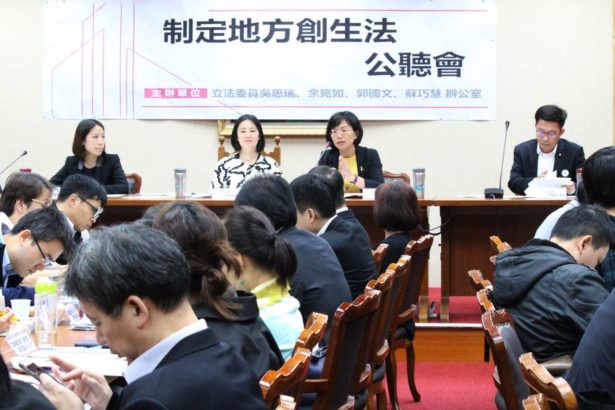Utilization of agricultural waste: the University of Science and Technology has set up a development center for agricultural and forestry secondary materials, and wood waste has been turned into biochar.
Pingtung University of Science and Technology has set up a value-creating Development Center for the Recycling of Agricultural and Forestry Secondary Materials this year, hoping to develop wood agricultural waste into various biomass particles or biochar particles, which can be used as fertilizers, soil modifiers, activated carbon, and so on. To solve the problem of agricultural waste, we even plan to set up derivative enterprises in the school in the future, train students, and deal with more agricultural waste.
Agricultural wastes such as rice stalks or branches are produced in agricultural production, for example, it is expensive to send them to incinerators as industrial waste, so farmers often choose to burn in the open air, but open-air combustion has a great impact on air quality. The "value creation Development Center for Recycling Utilization of Agricultural and Forestry Secondary Materials" of Ping University of Science and Technology uses granulator, carbonization machine and other processes to turn wood agricultural waste into biotic particles or biochar particles.
Long Kui, an assistant professor in the Department of Wood Science and Design of Ping University of Science and Technology, said that after wood wastes such as rice stalks and branches are made into biomass particles and biochar, they can not only be used as fertilizers, but also be made into activated carbon to absorb substances in water, improve the environment of aquaculture waters, reduce the frequency of water exchange, and then reduce the extraction of groundwater from farmers. The mushroom space bag, which is difficult to deal with because of its high water content, can also be made into soil modifiers to improve acidic soil.
Longyi said that the application of biomass particles is very wide. The annual production capacity of the development center is estimated to reach 1,000 tons, creating about 13 million economic value. If the biochar is further developed, the output value will be even more considerable. Longyi also said that at present, some patents have been obtained in the implementation plan of the center, and in the future, it is hoped that derivative enterprises will be set up through the on-campus education center, students will be trained, and the application of these technologies will be further expanded.

Pingtung University of Science and Technology has set up a value-creating Development Center for the Recycling of Agricultural and Forestry Sub-material this year, hoping to develop wood agricultural waste into various biomass particles or biochar particles, which can be used as fertilizers, soil improvers, activated carbon, and so on.

Biomass particles can also be used for barbecue instead of charcoal.
- Prev

Agricultural high-end science and technology equipment, automation technology single frozen coated cherry blossom shrimp intact
Cherry shrimp is one of the delicacies on Japanese plates, especially individuals with flawless feet, beards, eyes and tails, which can take the route of high-end restaurants. With the financial support of the Science College Program of the Council of Agriculture, and
- Next

Rural and local creation 20 "all walks of life advocate the establishment of special laws on local creation, break through the restrictions of laws and regulations, and stabilize the continuation of policies."
Rural and local creation 20 "all walks of life advocate the establishment of special laws on local creation, break through the restrictions of laws and regulations, and stabilize the continuation of policies."
Related
- A course of planting techniques and methods on how to grow carrots
- How to plant the latest tulips?
- Is it better to pick tea in the morning or in the afternoon? When is the best time for tea to be picked? what is the third or fifth tea?
- Launch Yuanxiao Happy combination Haocha + Tea Yuan healthy Taste
- Penghu Tourism "Fireworks 20 Parade with You"
- 2022 West Lake Happiness holds "Digital Revitalization Voucher" and draws iphone13 and laptop.
- Banqiao Fuzhou social houses are designed to change start-up combined with police elimination to create a safe and livable environment
- The convenient measure of "mechanical weeding" in Xinbei has been abused and the Agriculture Bureau has imposed heavy penalties on the illegal land consolidation.
- Changgeng University Joins Hands with Four Memory Factories to Rescue Memory Talent Shortage
- The list of Taiwan's top 100 MVP managers is listed by the Director-General of the Farmers' Association of Sanxia District.

